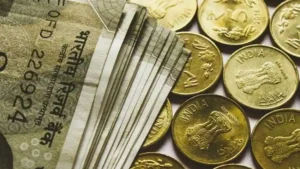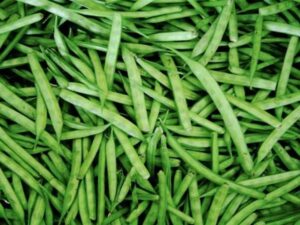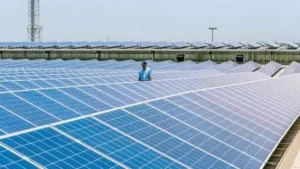Goodricke hopes to return in black this fiscal, looks to diversify into hospitality biz
Kolkata, Oct 11 (PTI) Tea major Goodricke Group Ltd, a part of the UK-based Camellia Plc, is hoping to return in black this fiscal and looking to diversify into the hospitality sector with an aim at offsetting its losses in the plantation business in Darjeeling, Managing Director and CEO Atul Asthana said.
The company, however, is expecting a flat growth in tea production this year to around 32 million kgs, including the output of its three subsidiaries, and is likely to witness a de-growth in revenue in the current fiscal as “subdued tea prices” remain a concern for it, he said.
The group will look for acquisitions of gardens in Assam in near future, particularly after the industry gets rid of the “current difficult phase”, he said.
“The Goodricke and its subsidiaries together annually produce around 30 million kgs. There will be a flat growth this year as output is expected to be 32 million kgs. The revenue of the group as a whole was around Rs 1,200 crore last year but we may witness a de-growth in turnover in the current fiscal due to subdued prices. Compared to last year, the average CTC price is down by around Rs 25 per kg this year, and orthodox prices fell by Rs 100 a kg,” Asthana told PTI in an interview.
According to its latest annual report, the Goodricke Group Ltd alone manufactured a total crop of 18.91 million kgs in 2022-23 vis-a-vis 18.55 million kgs made in the previous year, including bought leaf.
Its standalone revenue in FY23 was around Rs 882 crore, up from Rs 823 crore in the 2021-22 financial year.
The group along with its three unlisted subsidiaries, Amgoorie India Ltd (AIL), Stewart Holl (India) Ltd (SHIL), Koomber Tea Company Pvt Ltd (KTCPL), owns 29 tea estates across West Bengal and Assam.
CTC tea or the crush, tear and curl variety contributes about 70 per cent of the annual production for Goodricke, while orthodox and green tea account for 30 per cent, he said.
The sharp fall in prices of orthodox variety, a money spinner for the industry, by Rs 100 per kg is a “matter of concern”, he said.
“Darjeeling is another concern area as the yield is low while the cost is increasing every year. The cost of production is around Rs 650 a kg while the average price of Darjeeling tea is about Rs 450. This Rs 200-per kg loss is bleeding us.
“We are having thumping losses there. We need to cut down on that. As a group, we are looking to diversify into the hospitality sector in Darjeeling and are now talking to stakeholders. Hopefully, we finalise it soon,” Asthana said.
The group currently has five gardens in Darjeeling in West Bengal, spreading over 1,200 hectares.
Notably, the West Bengal government has allowed 15 per cent of the land of a tea garden for construction work with an upper ceiling of 150 acres.
“The diversification effort is aimed at stabilising our Darjeeling operations as selling gardens is not the solution for us,” he said.
Asthana, also the chairman of the Indian Tea Association, expressed disappointment over the current condition of the Darjeeling tea industry, stating that the 87-odd gardens in the hills of West Bengal could not overcome the shock it received in the 2017 agitation for a separate Gorkhaland state.
“Once, a 10 million-kg industry is now reeling under an annual production of 6.5 million kg,” he said.
Asked whether the company is looking for any acquisition, he said the company is currently not pursuing inorganic growth as the industry is going through a “difficult phase”.
“Let things stabilise. We have to look for acquisitions to keep the yardstick of cost per kg ratio manageable. With increasing costs, we need to go for volumes. We will look for acquisitions in the near future in Assam, but not now,” the company official said.
Goodricke Group Ltd, the listed entity, which had narrowed down its losses to Rs 32 lakh in FY23 from a loss of Rs 5.2 crore in the previous year, is hoping to make a profit this year.
“We are optimistic that the company will return in black this fiscal,” Asthana said.
Speaking on exports, Asthana said Goodricke’s overseas shipment was around 5-6 million kgs, which will be similar this year as “there is a recession in the global market” with volatility in oil prices and geopolitical tension around the world.
The oversupply of Kenyan tea at a cheaper price following the economic crisis of Pakistan, a major buyer of tea of the African country, is one of the key factors for the “flat exports figures” this year, he said.
Asthana is, however, optimistic about the company’s instant tea business which is export-oriented.
“We are positive about the growth in the instant tea segment, which depends on exports. The instant tea plant in Dooars has a capacity of 600 tonnes and we are producing around 370-380 tonnes. This is growing,” he said.
The branded tea business, which contributes around 30 per cent to the revenue of the Kolkata-headquartered tea company, is likely to remain “subdued” this year with low prices, Asthana said.
He also said the company will go for the organic route in expanding its tea shop network.
“We have around eight tea shops across the country. We will open 2-3 more next year,” he added.








